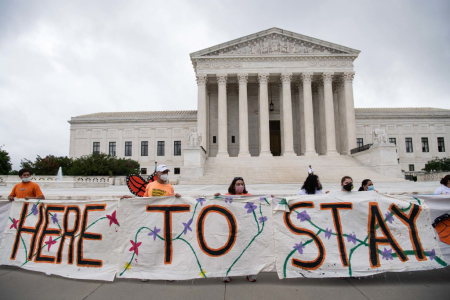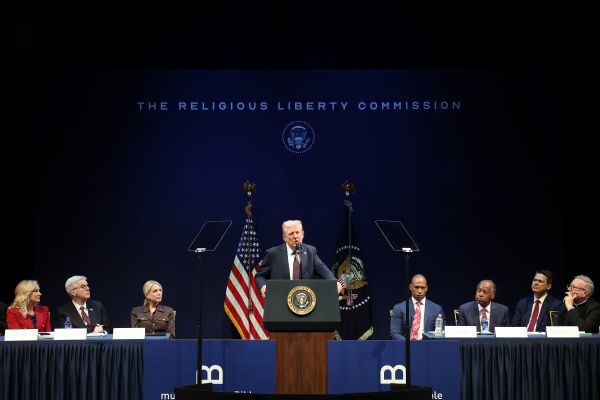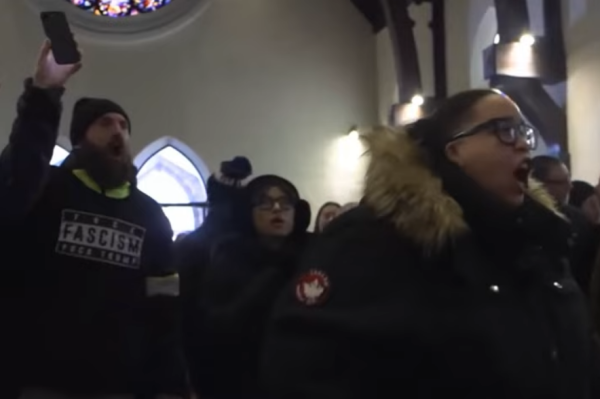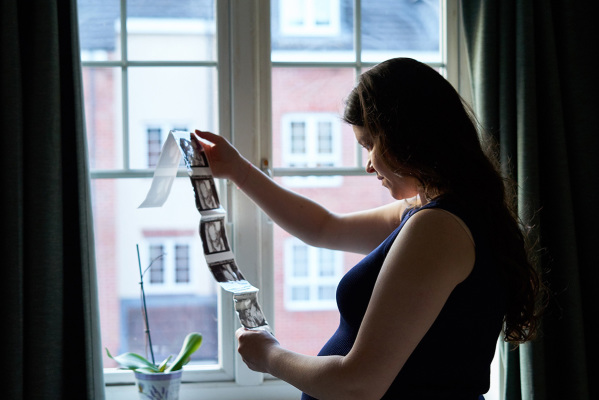Supreme Court blocks Trump from rescinding DACA; DHS sec. calls ruling a 'double standard'

The U.S. Supreme Court ruled Thursday that the Trump administration cannot proceed with its plans to end a temporary program that protects from deportation hundreds of thousands of immigrants who were brought to the U.S. illegally as children.
In a 5-4 ruling in which Chief Justice John Roberts sided with the liberal justices, the nation’s high court blocked the Trump administration from carrying out a plan it first announced in 2017 to end the Deferred Action for Childhood Arrivals program.
The DACA program was enacted in 2012 by the Obama administration to allow young immigrants brought to the country as children to apply for a temporary status that protects them from deportation and authorizes them to work in the country.
The program gave the Department of Homeland Security the ability to exercise prosecutorial discretion to defer deportation for immigrants brought to the U.S. illegally while they were 18 or younger and have lived in the U.S. since 2007.
The program has allowed over 700,000 people to remain in the country but does not give them lawful status.
Rescinding the DACA program was a promise that Trump made during his 2016 presidential campaign. However, the court ruled that how the administration went about rescinding the program was “arbitrary and capricious” as well as a violation of the Administrative Procedure Act.
In the majority opinion, Roberts wrote that the ruling does not “decide whether DACA or its rescission are sound policies.” Rather, the decision is rooted in whether the DHS “complied with the procedural requirement that it provide a reasoned explanation for its action.”
“Here the agency failed to consider the conspicuous issues of whether to retain forbearance and what if anything to do about the hardship to DACA recipients,” the opinion reads. “That dual failure raises doubts about whether the agency appreciated the scope of its discretion or exercised that discretion in a reasonable manner. The appropriate recourse is therefore to remand to DHS so that it may consider the problem anew.”
The administration argued that the DACA program went above and beyond the authority of the president because it enacted unilaterally.
Two memorandums were issued by successive DHS secretaries in 2017 and 2018. However, the Supreme Court ruled that the explanations offered were “insufficient under the APA’s arbitrary-and-capricious standard.”
In dissent, Justice Clarence Thomas wrote that the DHS under the Obama administration was “required to observe the procedures set out in the APA if it wanted to promulgate a legislative rule,” and it is “undisputed” that the DHS “did not do so.”
“It provided no opportunity for interested parties to submit comments regarding the effect that the program’s dramatic and very significant change in immigration law would have on various aspects of society,” Thomas wrote.
“It provided no discussion of economic considerations or national security interests. Nor did it provide any substantial policy justifications for treating young people brought to this country differently from other classes of aliens who have lived in the country without incident for many years. And, it did not invoke any law authorizing DHS to create such a program beyond its inexplicable assertion that DACA was consistent with existing law. Because DHS failed to engage in the statutorily mandated process, DACA never gained status as a legally binding regulation that could impose duties or obligations on third parties.”
In his dissent, Justice Samuel Alito contends that the high court did not actually “resolve” the question of DACA’s rescission.
“Instead, it tells the Department of Homeland Security to go back and try again,” Alito wrote. “What this means is that the Federal Judiciary, without holding that DACA cannot be rescinded, has prevented that from occurring during an entire Presidential term. Our constitutional system is not supposed to work that way.”
Trump took to Twitter Thursday morning to voice his displeasure with the ruling. The ruling comes just days after the Supreme Court dealt the administration another blow by ruling that federal civil rights law protects LGBT individuals from employment discrimination.
“These horrible & politically charged decisions coming out of the Supreme Court are shotgun blasts into the face of people that are proud to call themselves Republicans or Conservatives,” Trump wrote. “We need more Justices or we will lose our 2nd. Amendment & everything else. Vote Trump 2020!”
Acting Secretary of the Homeland Security Ken Cuccinelli called the decision a “double standard” and “outrageous.”
“Supreme Court says all any President needs is a pen and a phone?” Cuccinelli wrote in a tweet. “Does anyone think they’d let @realDonaldTrump just make up ‘laws’ on sticky notes like @BarackObama???”
Trump’s plan to rescind DACA drew the ire of not only those on the political left but also some evangelical Christian leaders, including those within the National Association of Evangelicals and the Rev. Samuel Rodriguez, president of the National Hispanic Christian Leadership Conference.
They argue that immigrants who came to the U.S. as children, most of whom know no other home since they grew up in the U.S., should not be punished for the actions of their parents.
“Today’s Supreme Court decision gives a much-needed reprieve to the many DACA recipients in our churches and communities who have been stuck in legal limbo waiting for our nation to recognize that America is their rightful home,” Rodriguez, who prayed at Trump’s inauguration in 2017, said in a statement responding to the ruling.
“I celebrate this victory with these young men and women and their families. They are a blessing, not a curse, to our nation.”
As evangelical leaders have called for restitution-based immigration reform that provides a pathway for immigrants residing in the United States to be granted legal permanent residency, Rodriguez stressed that the country can’t “lose sight of what’s really not working here.”
“[T]his was the job of Congress, not the executive or judicial branch,” he said. “It’s time for Congress to do their job and to fix our broken immigration system. Congress must stop passing that responsibility to the other branches of government. Congress could have achieved this on at least three occasions over the last three years and on each occasion they opted for political expediency over justice.”
Russell Moore, president of the Southern Baptist Convention's Ethics & Religious Liberty Commission, responded to the ruling in a statement explaining that "Dreamers are not an abstraction."
"They are people created in the image of God, who were brought here as children by their parents. Their entire lives are at stake right now," Moore stressed. "This Supreme Court decision might address an immediate question of administrative law, but it does not, ultimately, protect our vulnerable neighbors."
"There is no sending these people ‘back’ — in many cases they have no memory at all of the land of their parents' origin," he added. "Those who have lived as good neighbors, contributed so greatly to our country, should be protected from the constant threat of having their lives upended."
Moore and other evangelical leaders affiliated with the Evangelical Immigration Table signed onto a letter sent to Congressional leaders Thursday following the ruling urging them to permanently resolve the situation for Dreamers.
On Twitter, former President Barack Obama praised the court’s decision.
“Eight years ago this week, we protected young people who were raised as part of our American family from deportation,” he wrote, before urging followers to vote for his vice president, Joe Biden, for president this November. “Today, I'm happy for them, their families, and all of us.”
Follow Samuel Smith on Twitter: @IamSamSmith
or Facebook: SamuelSmithCP





















